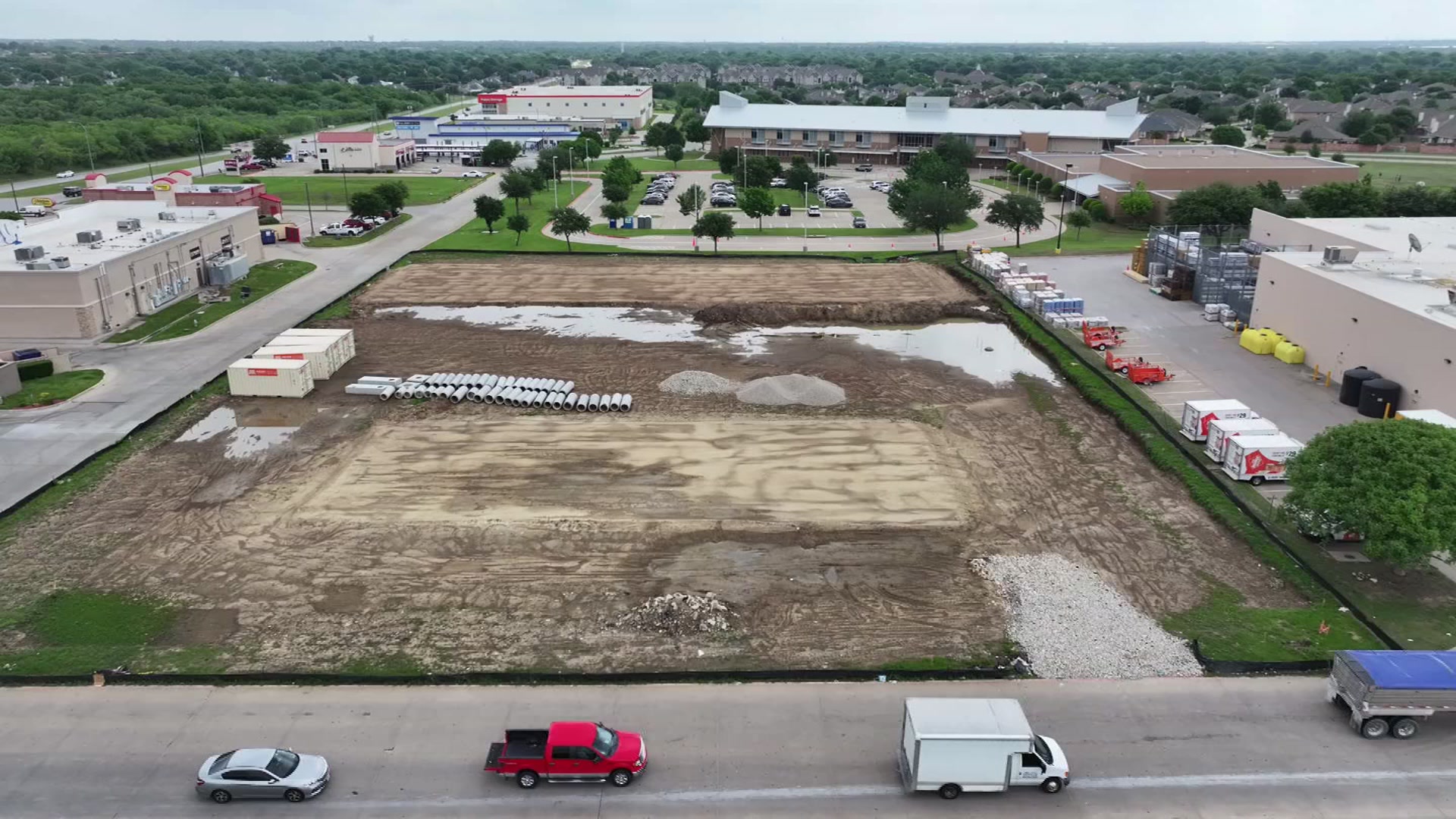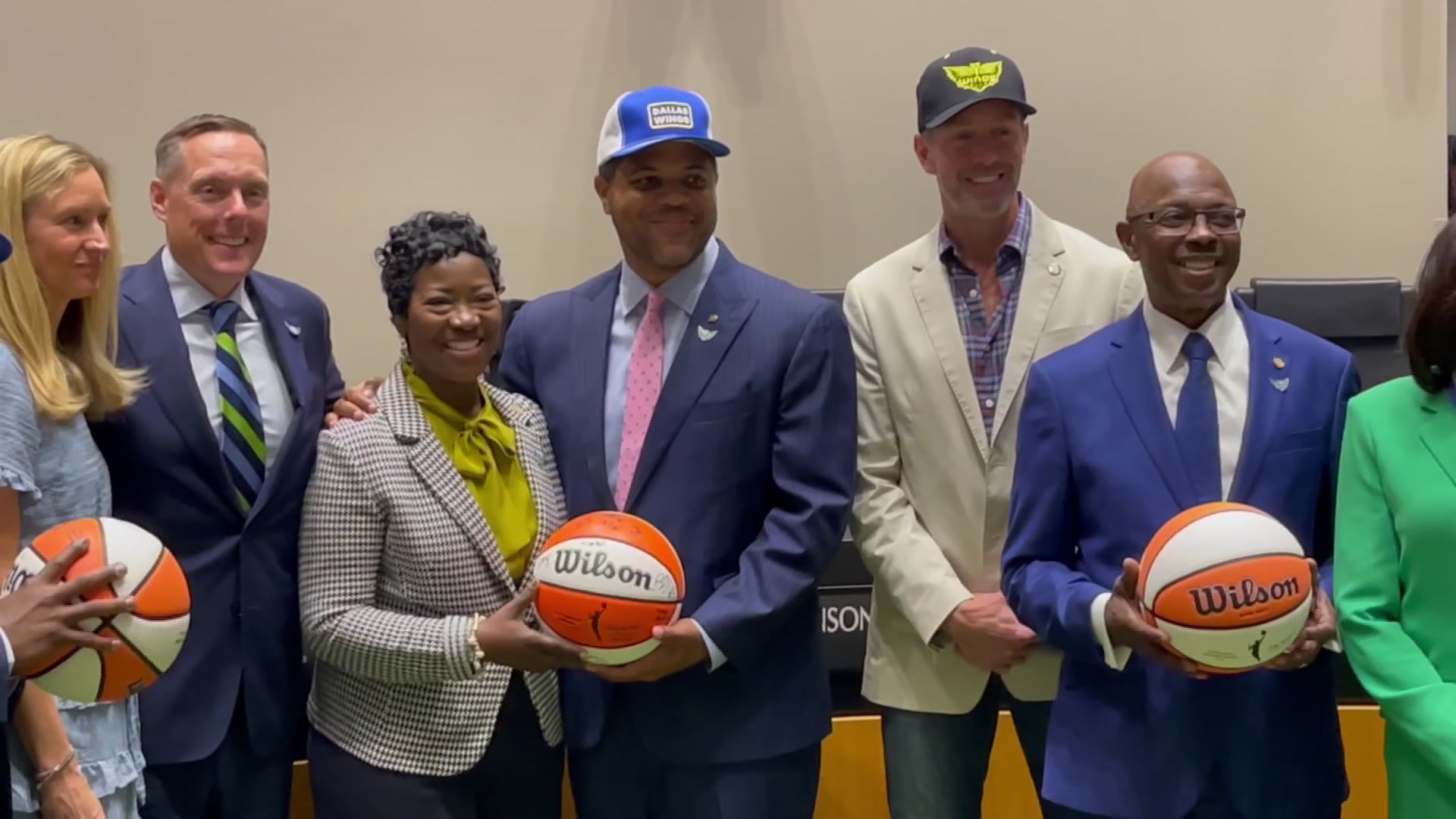Wade DeRousse never thought he'd be able to share athletics with his first son, Samuel, who was born with cerebral palsy and was unable to use his arms or legs.
"Long story short, he couldn't walk," DeRousse said.
The San Antonio Express-News reports Samuel's parents thought the cerebral palsy would prevent him from doing many of the things children typically do, particularly sports.
But that changed when the DeRousse family discovered Kinetic Kids, a local nonprofit organization dedicated to providing sports and recreational activities for children ranging in age from 18 months to 18 years who have cerebral palsy, spina bifida, Down syndrome, autism, Asperger's syndrome, brain tumors, cancers or other neurological disorders or who for other reasons can't participate in such programs with their peers.
Samuel put in a lot of work through various therapies and eventually learned to use a walker and crutches, his father said.
"And then when we got to middle school, we found Kinetic Kids," he said. "Kinetic Kids kind of showed him adaptive sports."
It was literally a life-changing moment for the family. Samuel participated in a wide variety of activities through Kinetic Kids -- from wrestling to tennis -- but he's now focused on Paralympics wheelchair racing. And he's trying to organize a varsity-level, NCAA adaptive sports program at Texas A&M, where he's a freshman.
Local
The latest news from around North Texas.
"As he got older, he really took a liking to track," DeRousse said. "And through Kinetic Kids, we went to several different track meets around the country, namely to Oklahoma every year, and because of that, it just kind of evolved into a lifelong sport for him."
Kinetic Kids was founded in 2001 by Tracey Fontenot and Kacey Wernli, both physical therapists, when the duo decided that their pediatric patients needed an opportunity to have physical play and social contact outside of therapy sessions.
"We were just kind of doing it to carry over on physical therapy, really," Fontenot said. "That's what our main goal was at the time."
But they quickly realized the profound effect it had on the children. Parents noted that their children had never before had positive experiences around sports, she said.
"When they're at school or any time they'd ever attempted to put them on a team, no one really wants them on the team and they sit on the end of the bench by themselves and have a negative experience," Fontenot said. "And for their child to have this opportunity and be a part of a team meant so much to them."
That first year, the two women gathered 10 kids, along with physical therapy students who volunteered to help, and they played baseball on fields connected to the University of Texas Health Science Center at San Antonio, where Fontenot and Wernli had gone to school. The next year, 20 children joined to play another season of baseball. On the heels of that second season, parents said they didn't want to wait another year for a third season and asked the pair to expand their program and options.
Around that time, other physical therapists who had varied sports backgrounds had started coming forward to offer their help as well.
"We really just kind of all came together, the therapists coming forward and the concept of getting these kids active and knowing they can do all these things, they can be athletes -- maybe they need some modifications, and maybe they just needed the opportunity to be put in a class with other people similar to them," she said.
In 2003, the organization really took off. It formed a board of directors, held community meetings to gather recommendations on expansion of sports offerings and added programming. Some 60 kids participated in four different programs, Fontenot said.
In the ensuing five years, the number of participants doubled and then tripled, she said.
Now, Kinetic Kids offers 235 programs a year for about 3,000 kids, Fontenot said.
Organization leaders and donors had considered acquiring facilities for the program, but they ultimately decided to continue using sports facilities around the city instead.
"We use traditional sports settings where typical kids go," Fontenot said. "We realized our kids that do our programs, they want to be like their brothers and sisters, and they don't want to be isolated in a building.
"We're in the same places typical kids are. We're just maybe at a different time."
Families pay $70 per program, but Kinetic Kids has scholarships that ensure children are able to participate even if their families can't cover the cost.
Among the programs are sports such as swimming, basketball, T-ball, tennis, wrestling, cheerleading and CrossFit. On average, it costs Kinetic Kids about $235 per child in each program, Fontenot said, so every child's participation is subsidized. Kinetic Kids receives grants and accepts donations.
Financial contributions may be made by navigating to the organization's website, kinetickidstx.org, and clicking on the "Donate" tab at the top right of the homepage. The organization also accepts donations of sports equipment. And Kinetic Kids welcomes volunteers; the application for volunteers is on the website.
For the DeRousse family, Kinetic Kids became much more than an opportunity for Samuel to participate. DeRousse said it gave him an opportunity to actually play sports with his son, and he and his family got to know others, making friends along the way. They share common experiences, can relate to each other and help each other, he said.
"We're military, so we've been all over the country and never really thought about playing sports with Samuel, and then they showed us adaptive sports and we got into it," he said. "We found wheelchair racing, wheelchair tennis, wheelchair basketball, things like that. And my son just immediately enjoyed it; he had fun."



